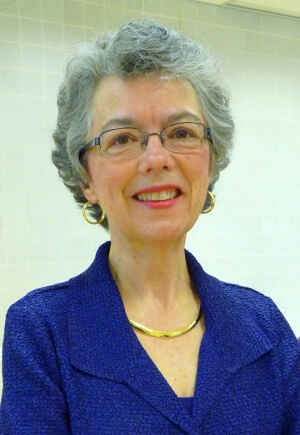- April 02, 2019
- By Chris Carroll
Officials in Rockland County, New York, last week responded to a growing measles outbreak with a seemingly draconian order to residents: Vaccinate your children or keep them out of public spaces.
So far this year, six U.S. outbreaks of the disease that was declared officially “eliminated” in 2000 have sickened some 400 people, but that hasn’t persuaded vaccine opponents who believe vaccination causes autism and other health problem—claims that peer-reviewed studies have repeatedly debunked.
Sandra Quinn, chair of the Department of Family Science and a researcher funded by the National Institutes of Health and the U.S. Centers for Disease Control to examine public attitudes toward vaccines, spoke yesterday to Maryland Today about what fuels the vaccine resistance, what makes her uncomfortable about the Rockland County decision and the policy steps needed to protect the public from a resurgence of diseases we thought we’d beaten.
Is something changing in the national conversation about vaccination and resistance to vaccination?
The proliferation of social media has enabled a spread of misinformation in ways that are frankly hard for us not only to keep up with, but hard for us to understand who’s doing the talking, who’s doing the communicating and what their motives are. We also see bad actors like bots and trolls that are not just promoting misinformation, but also seeking to sow discord or to sell you something.
How does social media help incite resistance to vaccines?
People questioning vaccines has been around a long time, but social media has amplified voices that may not represent the larger public. When you look at the Pew survey data, we still see very high support for vaccination. If you look at social media data, you might not see that. With social media and for the internet writ large, many people don’t know how to identify credible, legitimate info. That’s not a criticism of individuals… It’s more a criticism of organizations and providers that don’t necessarily help foster the kind of health literacy that’s needed.
What about the move to push companies or websites like Amazon and YouTube to make anti-vaccine content less available?
That’s the $64,000 question. There’s a part of me that’s relieved in some ways it is happening. There’s another part of me that says, just because people can’t get it here doesn’t mean they won’t get it somewhere else. It’s also a little bit of a challenge for me because of the concept of freedom of speech, and I feel torn between that and reducing disinformation and fostering high vaccination rates as a collective good for our society. But I also know from our research how many of those anti-vaccine messages are paid ads—this isn’t all about private citizens expressing themselves.
What was your reaction to the Rockland County measles emergency?
I’m glad I’m not a Rockland County health official who had to make a decision like that. I understand the rationale from a public health perspective. One of the issues here, though, is that society has often linked fear of infectious diseases to marginalized or stigmatized communities—historically, we saw that in the fear of immigrant groups coming into the United States, or even of Americans, like in the 2014 Ebola epidemic, because of infectious disease in other countries. Unfortunately, in Rockland County this seems to have fed into fears about and discrimination against the ultra-Orthodox Jewish community that lives there, and I fear the repercussions.
What action is needed?
There still are 17 states that allow for philosophical exemptions to vaccination requirements. That can just be, “I don’t believe in vaccination.” That is increasingly becoming a focus of policymakers. California after the Disneyland outbreak in 2014 and 2015 changed their state laws and did away with exceptions except for medical exemptions. In Washington State, they are literally battling that out as we speak. I think policymakers and the public are beginning to recognize we have tipped so far that we are at a danger point for these diseases. I would argue it is time to look at our policies and reconsider the implications for the health of our children and communities that result from lax laws that allow many possible exemptions for non-medical reasons.
Is anything changing for the better?
With the number of outbreaks and numbers of cases that just keep increasing—it’s measles now, but we’ve had pertussis outbreaks, we’ve had mumps outbreaks—I think there’s beginning to be a renewed appreciation that these diseases are dangerous, but they also are preventable. I think it is also being understood that the decision to vaccinate one’s own children is not just about one’s own children, it’s about the broader community, and particularly about protecting people who are vulnerable because they cannot be vaccinated for real health reasons. As we’ve seen in places where there are outbreaks, when you go below a certain percentage vaccinated, you lose that herd immunity that protects everyone. With the U.S. this year already surpassing the 2018 case number, I am hopeful that more legislators will take action and more parents will step forward to protect their own and others' children from unnecessary suffering.
Topics
ResearchTags
Family ScienceUnits
School of Public Health